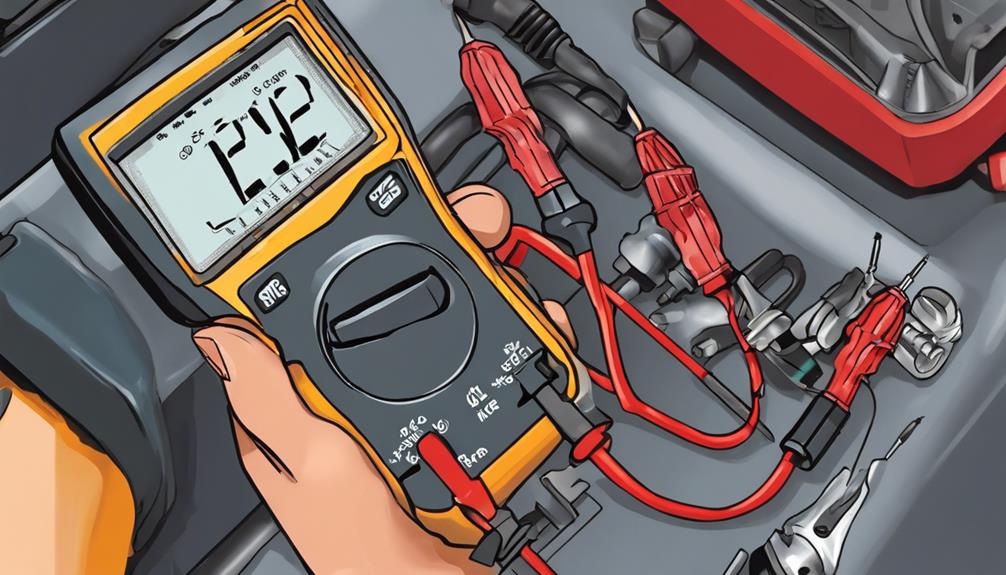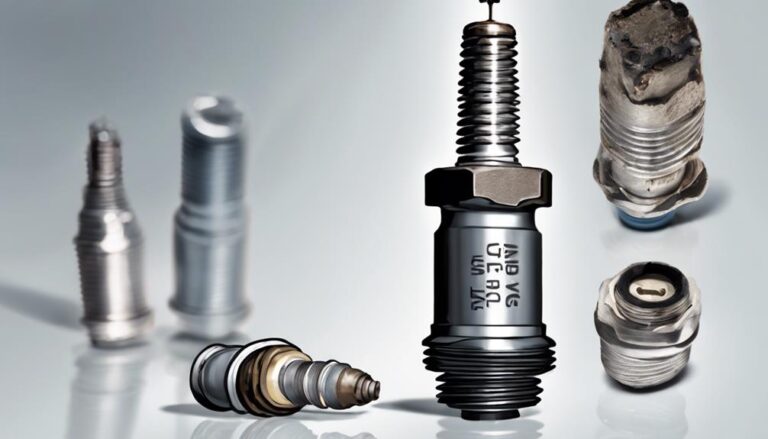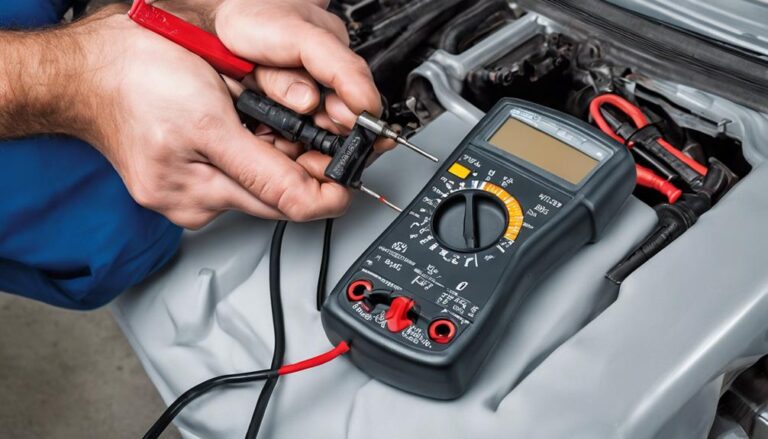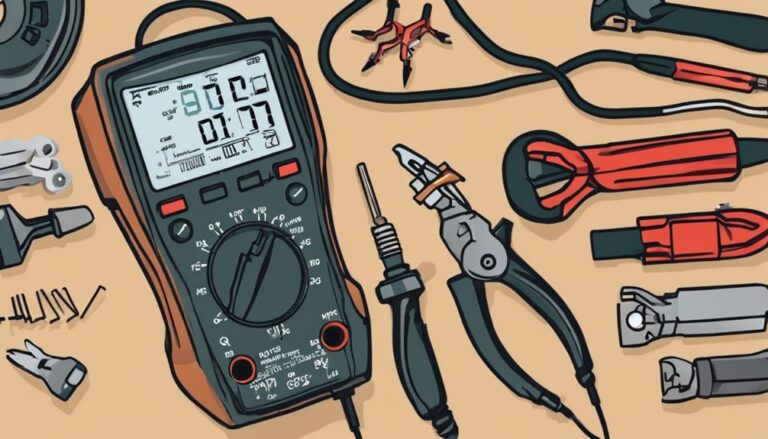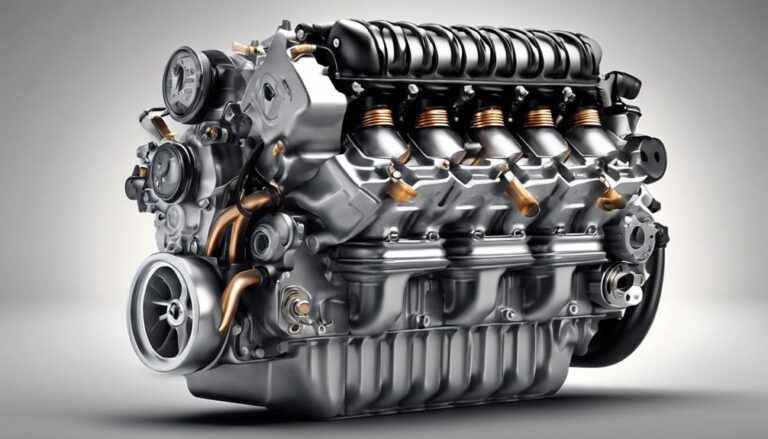Troubleshooting Faulty Ignition Coils in Your Car
Have you ever wondered if a faulty ignition coil could be the culprit behind your car's performance issues? When faced with symptoms like rough idling and decreased power output, it's essential to consider the health of your ignition coils.
But what exactly causes these components to fail, and how can you pinpoint the root of the problem? Understanding the intricacies of troubleshooting faulty ignition coils could save you time, money, and potential headaches down the road.
Key Takeaways
- Use OBD-II scanner for error code checks and diagnostic tests.
- Look for symptoms like engine misfiring and difficulty starting.
- Inspect wiring, connectors, and spark plugs for issues.
- Troubleshoot with voltage checks, visual inspections, and multimeter tests.
Common Signs of Faulty Ignition Coils
If you experience difficulty starting your car or notice sputtery starts, these are common signs that your ignition coils might be faulty. Ignition coil diagnostics play a crucial role in ensuring optimal engine performance. When your ignition coils start to fail, you may notice engine misfiring, leading to poor performance and shaking.
Reduced power output and fuel efficiency can also be attributed to faulty ignition coils. Additionally, backfiring, caused by unburnt fuel in the exhaust system, may signal a failing ignition coil. It's important to pay attention to these signs as they can affect your overall driving experience.
Keep an eye out for an illuminated check engine light, as this is a key indicator of potential problems with your ignition coils. Proper maintenance and timely ignition coil diagnostics can help prevent these issues and keep your engine running smoothly.
How to Identify Ignition Coil Issues
Identifying ignition coil issues involves conducting thorough diagnostic tests to pinpoint potential malfunctions affecting your vehicle's engine performance. When it comes to ignition coil testing, there are several methods to help diagnose problems accurately. Below is a table summarizing key testing techniques and maintenance tips for ignition coils:
| Testing Methods | Description |
|---|---|
| OBD-II Scanner | Utilize a scanner to check for error codes related to ignition coils. |
| Wiring and Connectors | Inspect wiring and connectors for any signs of damage or corrosion. |
| Spark Plug Tests | Perform spark plug tests to assess the ignition coil's performance. |
Symptoms of Failing Ignition Coils
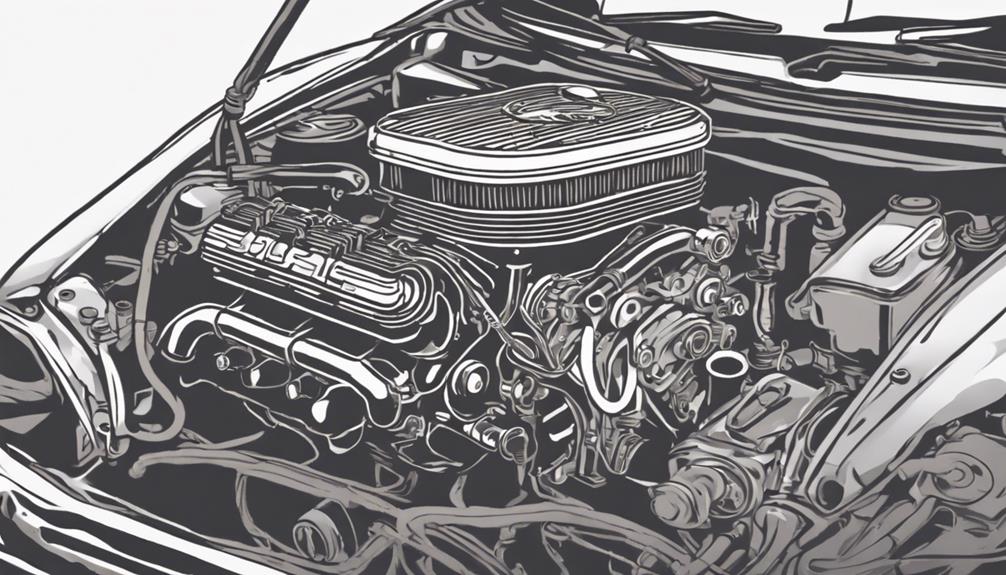
One common indication of failing ignition coils is engine misfiring at higher speeds. This symptom occurs because the ignition coil is unable to provide the necessary spark to the spark plug at the right time, resulting in a disruption of the combustion process.
Another sign to watch for is difficulty starting your vehicle in cold weather. When the ignition coils are failing, they may struggle to generate enough voltage to ignite the air-fuel mixture in the engine, especially in low-temperature conditions.
Additionally, backfiring from the exhaust can be attributed to failing ignition coils, as the misfiring cylinders can lead to unburned fuel making its way into the exhaust system.
Lastly, pay attention to any instances of your vehicle stalling when coming to a stop, as this could be a result of faulty ignition coils disrupting the electrical connection to the spark plugs.
Troubleshooting Ignition Coil Problems
Troubleshoot ignition coil problems by conducting a thorough inspection of your vehicle's electrical system and components. Start with coil testing to check for issues like overheating, cracks, or corrosion. Use a multimeter to perform voltage checks across the terminals to ensure proper functioning. Look for any visible damage on the coil casing, such as cracks or signs of wear. Check the wiring and connectors for any loose connections or fraying that could affect the coil's performance.
When diagnosing ignition coil problems, utilize an OBD-II scanner to retrieve trouble codes that may point to specific issues. Keep in mind that symptoms like engine misfires, rough idling, and difficulty starting can also indicate faulty ignition coils. Regular preventive maintenance, such as cleaning the coils and ensuring proper grounding, can help avoid potential problems in the future.
Diagnostic Steps for Faulty Ignition Coils
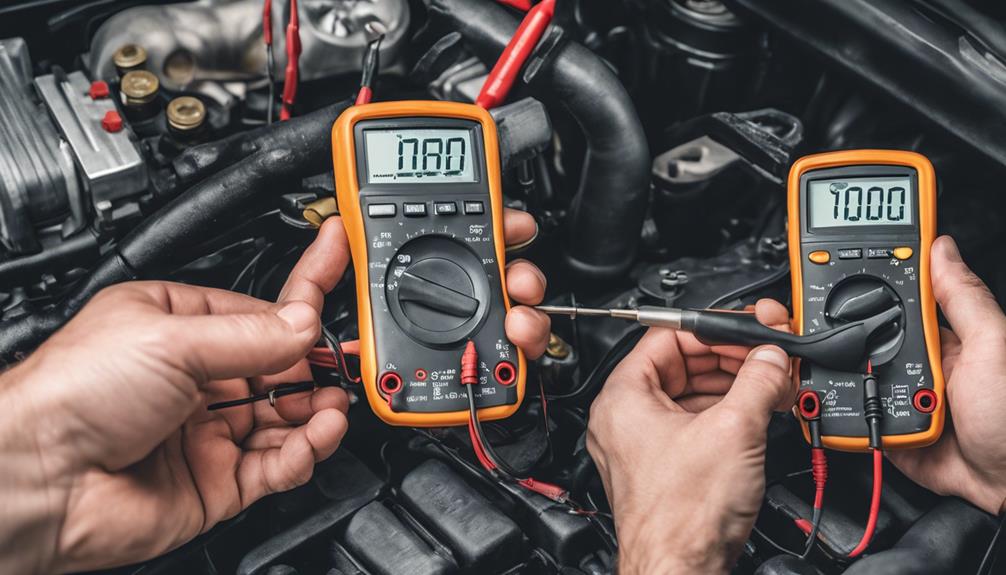
To diagnose faulty ignition coils effectively, begin by using an OBD-II scanner to retrieve relevant trouble codes associated with ignition coil issues. Once you have gathered this information, follow these steps:
- Inspect the wiring and connectors for any signs of damage or corrosion.
- Perform a physical inspection of the ignition coil for cracks or overheating.
- Check for voltage fluctuations that could indicate a problem with the ignition coil.
- Measure the coil resistance to ensure it falls within the manufacturer's specifications.
Frequently Asked Questions
How Do You Diagnose a Bad Ignition Coil?
To diagnose a bad ignition coil, test the spark plug in each cylinder to pinpoint the affected one. Check the electrical system for loose connections or damaged wiring. Seek professional help for advanced tests if needed.
What Is the Most Common Cause of Ignition Coil Failure?
The most common cause of ignition coil failure is overheating from excessive current flow. To prevent this, ensure proper preventive maintenance by addressing issues like cracks in the casing, carbon tracking, corrosion on connections, and internal winding breakdown.
How Do I Know if My Ignition Control Module Is Bad?
If you suspect a bad ignition control module, test it using a multimeter. Look for symptoms like engine misfires, stalling, or hard starting. Intermittent stalling and rough idling are signs of trouble.
Can You Still Drive With Bad Ignition Coil?
You shouldn't drive with a bad ignition coil. It's risky and could lead to engine damage or stalling. In emergency situations, pull over safely. Get professional help to prevent further issues and ensure safe driving.
Conclusion
In conclusion, identifying and addressing faulty ignition coils in your car is crucial for optimal engine performance. By recognizing common symptoms such as misfiring, reduced power, and engine stalling, you can troubleshoot and prevent further damage.
Remember, prompt inspection and repairs by a professional can make all the difference in the longevity of your vehicle's ignition system. Stay vigilant and proactive to keep your car running smoothly and safely on the road.

